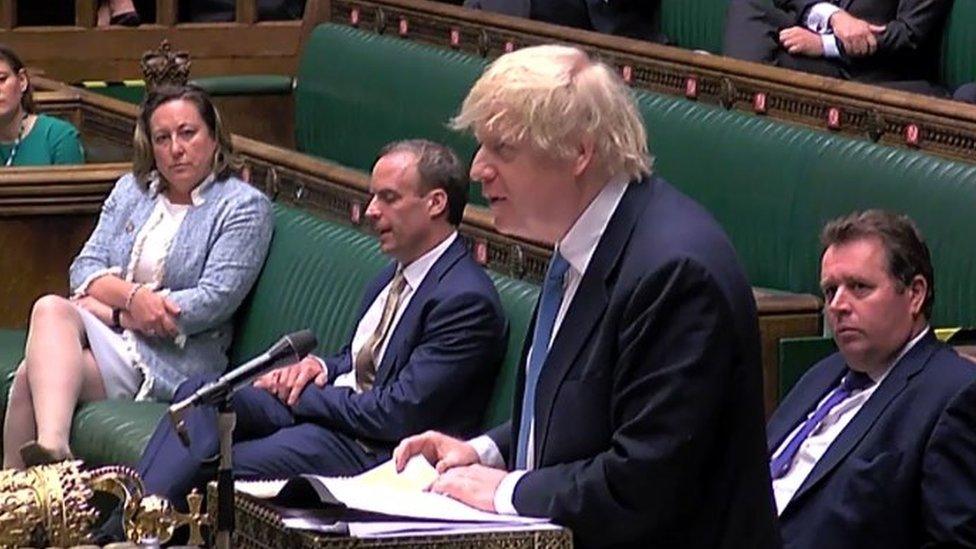UK's aid cuts for clean water projects criticised
- Published
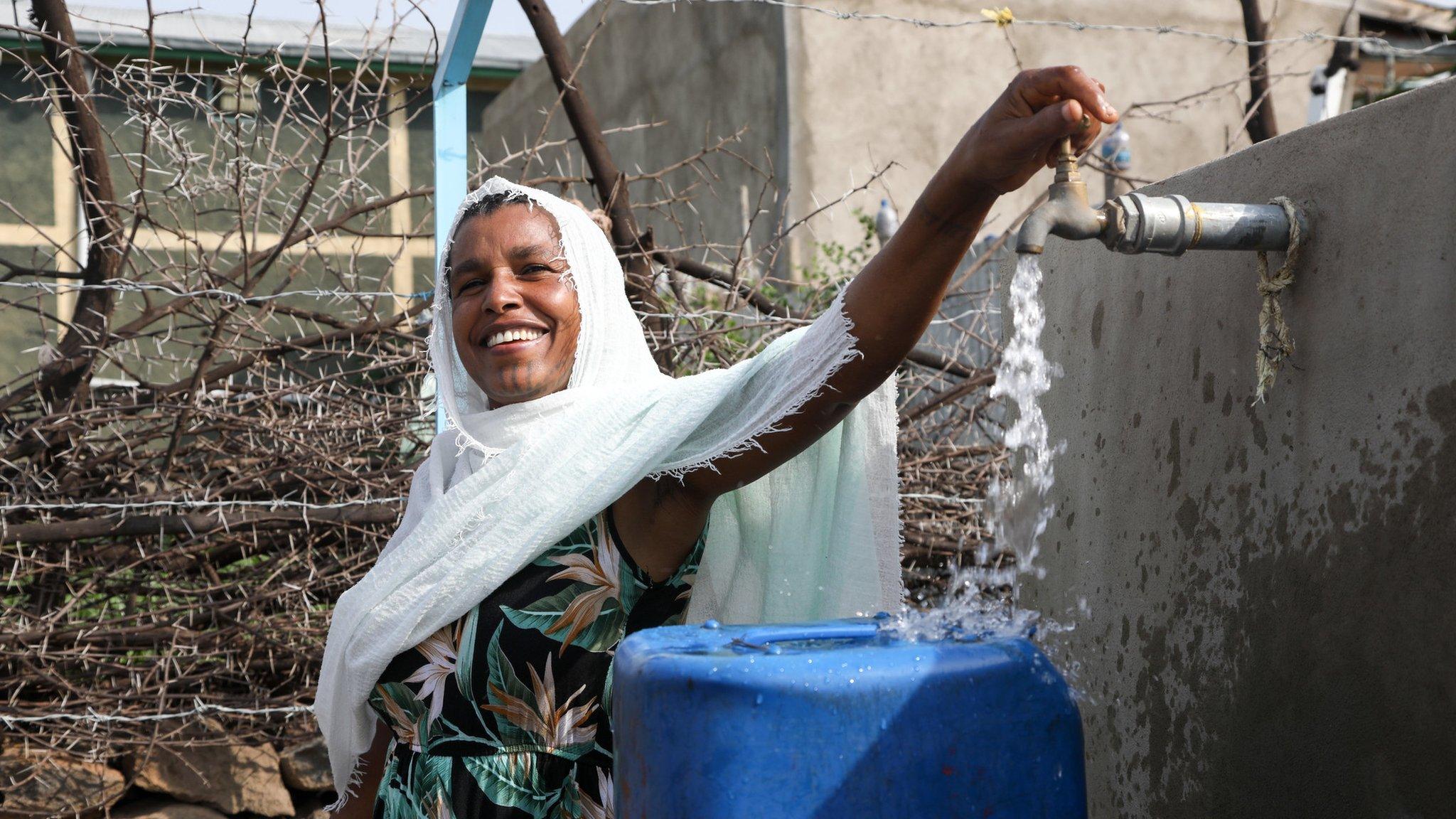
UK aid has paid for the installation of clean water points in countries such as Ethiopia
A leading charity has criticised the government's plan to reduce funding for overseas water and sanitation projects during the pandemic - as details of cuts in the foreign aid budget emerge.
Funding for water, sanitation and hygiene bilateral projects will be cut by more than 80%, a leaked memo said.
WaterAid's Tim Wainwright criticised the timing of "savage cuts".
The Foreign and Commonwealth Development Office said Covid had "forced us to take tough" decisions.
The government announced last year it would cut UK aid spending from 0.7% of national income to just 0.5% - which amounts to a reduction of more than £4bn - but has yet to confirm which programmes will be affected.
The "temporary measure" was defended at the time as being supported by voters, with some MPs saying domestic spending should come first during the pandemic.


This is just the start. There are hundreds of cuts to specific aid programmes that are just waiting to be revealed.
The government is refusing to say precisely where the axe will fall. That's partly down to precedent - normally these figures are announced retrospectively.
But it is also because the Foreign and Development Office has yet to make all the decisions.
Aid charities say the government announced the global cut without remembering it had pre-existing commitments to multilateral funds - like the World Bank, the EU, and the GAVI vaccine alliance.
This meant the cuts to bilateral aid funds would have to be even deeper and those decisions are hard. That is why support for programmes that provide water and sanitation or polio eradication is being reduced, even in the midst of a global pandemic.
Ministers argue they have to cut the budget because of the impact the pandemic has had on the economy - and the UK will still be spending £10bn on aid, more than most countries.
But the cuts are now beginning to bite and for some of the most vulnerable people around the world, there will be real consequences.

The UK contributed £176m to bilateral water, sanitation and hygiene projects in 2019 - so an 80% cut would represent a budget of around £36m.
Mr Wainwright said there was "enormous support" for funding water projects among UK taxpayers "who have helped to bring clean water, good hygiene, and better sanitation to 62 million people in the last five years".
He said clean water and sanitation were "the first line of defence against the twin threats of Covid-19 and the impacts of climate change" and urged the government to reverse the cuts "at the earliest possible opportunity".
In the UK, the government has promoted hand-washing as one way the public can protect themselves from contracting coronavirus, including the slogan "Hands, Face, Space".
A review of water aid projects published in March 2012 found, external "strong evidence that lack of hygiene (hand-washing) increases the risk of viral respiratory infections".
The leaked memo - prepared for FCDO minister Wendy Morton ahead of a meeting with MPs - predicted there would be concerns about proposed aid cuts for water supply, sanitation and hygiene - known as "Wash".
It said some MPs "will be worried about the reduction in the UK's spend on Wash at a time when [global] Covid-19 cases are increasing" and as the UK prepares to host the COP26 climate change conference in November in Glasgow.
The memo added: "We expect criticism on the reduction in spend, particularly as the UK public views Wash as a priority area for UK aid, because hand hygiene is widely recognised as a critical intervention to counter the spread of Covid-19, and because the cuts are being announced in the year that the UK is hosting COP26."
In a section titled "handling advice", it said the funding reductions for Wash "add to a pattern of declining UK support to the sector that started in 2019".
The memo defended the timing of the cuts and advised Mrs Morton to "emphasise the UK's support to hand-washing to help tackle Covid-19 will continue as previously planned".
It said these steps included working with soap maker Unilever, Unicef and other organisations "to roll out hygiene campaigns in 37 countries" reaching a billion people to date.
Last week, 200 charities said in a joint statement that cuts to humanitarian aid by the UK were a "tragic blow for many of the world's most marginalised people".
Andrew Mitchell, the former international development secretary - and a critic of the aid cuts - said: "Access to water and sanitation is consistently the UK public's top priority when polled abut what aid should be spent on...
"We are balancing the books on the backs of the poorest and most vulnerable people in the world and it is a matter of national shame for our country to be slashing spending in this way."
A FCDO statement said: "We will still spend more than £10 billion this year to fight poverty, tackle climate change and improve global health.
"We are working through what this means for individual programmes. Decisions will be announced in due course."
- Published21 April 2021
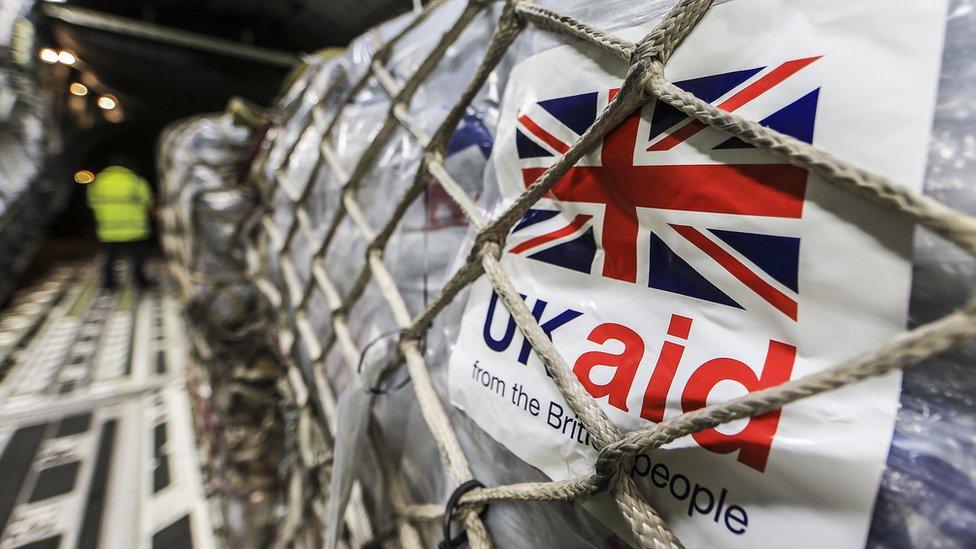
- Published30 March 2021
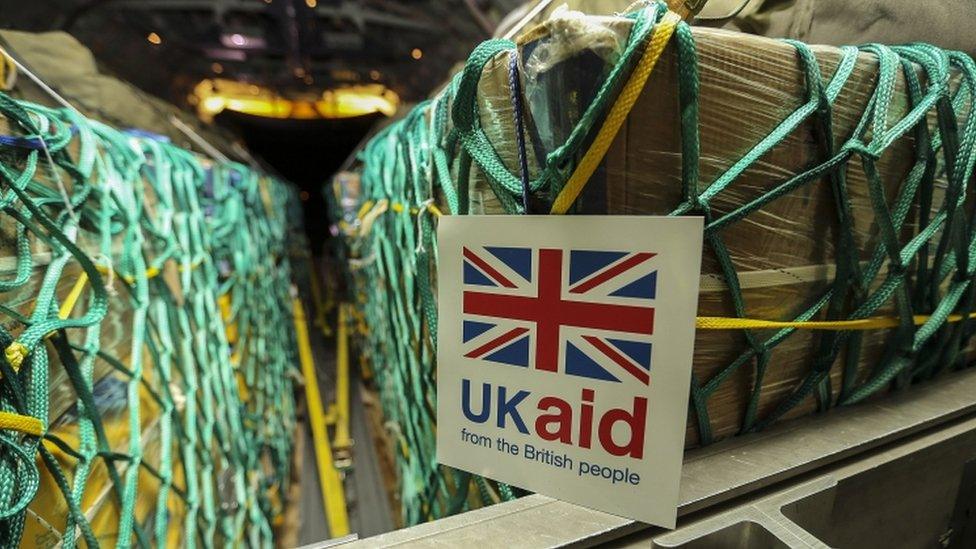
- Published26 November 2020
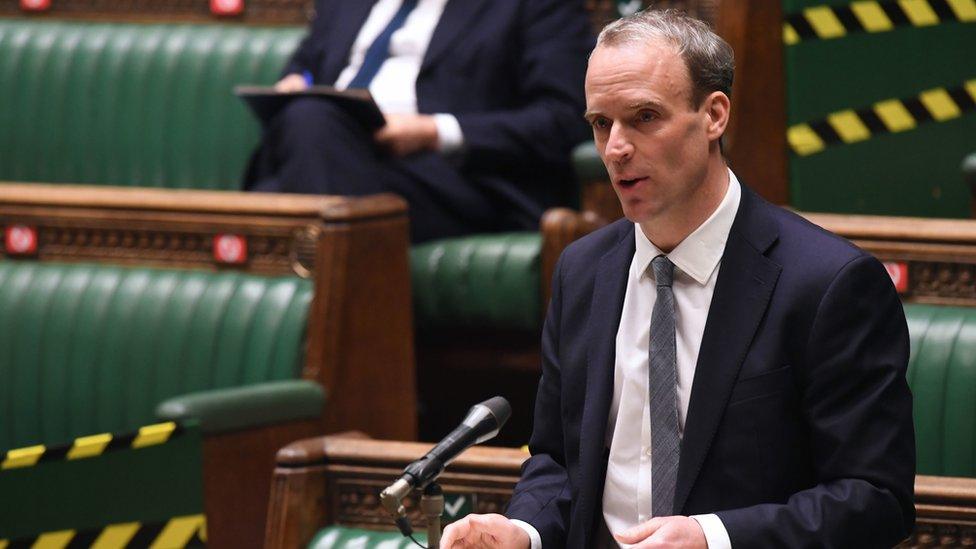
- Published24 November 2020
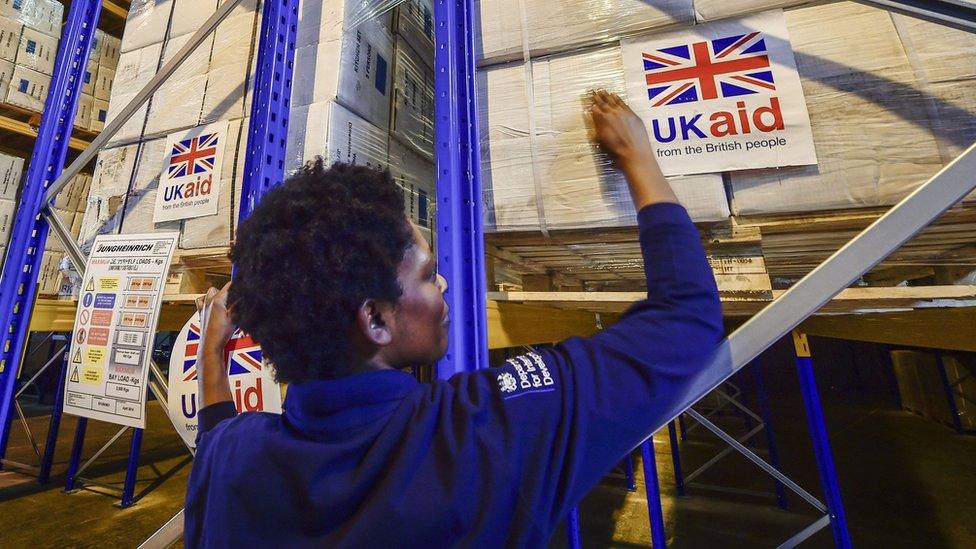
- Published16 June 2020
